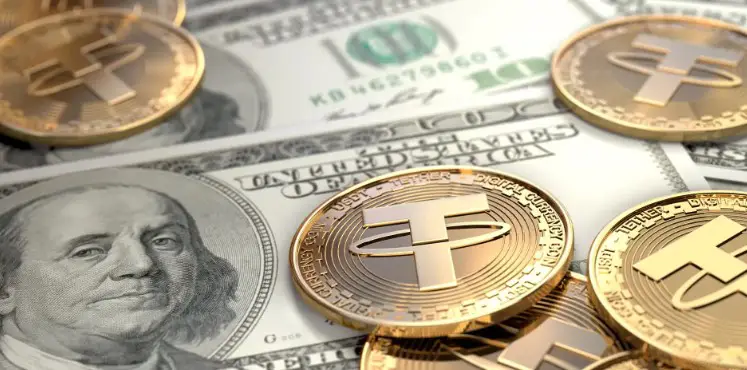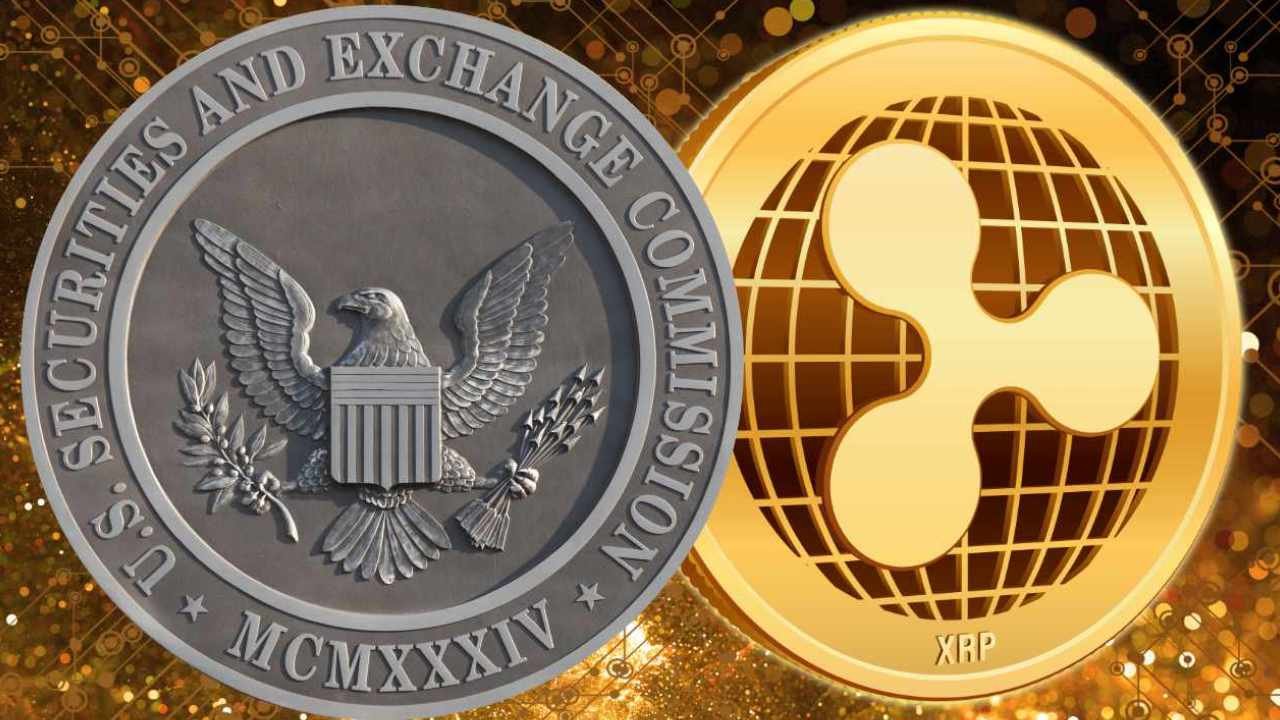Court Denies Ripple-SEC Push to End XRP Case—Judge Keeps Ruling
Do You Invest in Altcoins or Stablecoins?
(Originally posted on : Crypto News – iGaming.org )
The crypto world has grown immensely since the release of Bitcoin several years ago. There are tens of coins today, each targeting particular markets and solving specific problems. The coins can be broadly classified as altcoins and stablecoins.
Each category has its advantages and disadvantages. Therefore, your choice of coins should be based on the strengths of the category you pick along with the intended use. This article explores each category to help with the selection.
What are Altcoins?
The word ‘altcoin’ denotes alternative coins. These are coins created to offer alternatives to Bitcoin. They improve one or more features of Bitcoin or its blockchain technology. You will notice that many have a similar structure and characteristics to those of Bitcoin.
Some of the popular altcoins include Litecoin, Ethereum, Cardano, and XRP, among many others. These coins can be categorized into various categories, like payment coins. For example, Litecoin is used to transfer value. Others are utility tokens like Ethereum, which facilitates the provision of services and decentralized applications. Some coins are chiefly governance coins, like Uniswap, where stakeholders vote for decisions about a given blockchain.
Advantages of Altcoins
Diverse Use Cases
As explained earlier, most coins can be used for various applications in that they can be used for exchange, their blockchains support decentralized applications, and holders can vote on decisions on the future of the project. You can play Blackjack at Stake Casino, as explained by Blackjack.Guide, using such coins, buy goods and services, and invest in a DeFi project with the same tokens. This versatility streamlines your financial transactions and enables easy money management.
New players only. Exclusive Welcome Bonus of 177% + 77 Free Spins
Innovation
Altcoins tend to push the boundaries of what technology can do. In the process, they create formidable solutions for the market. For example, Ethereum introduced support for smart contracts and decentralized applications.
Value Increase
One of the characteristics of Altcoins is limited supply. This means that once the coin becomes known and demand goes up, its value also increases. Other e-currency blockchains burn their tokens periodically to maintain demand pressure and price growth. This is a critical advantage for those who wish to invest in coins for short-term and long-term returns.
Decentralization
The biggest advantage of altcoins is their decentralized nature. There is no single entity that controls the network. This eliminates the chances of fraud and also increases the speed of service delivery while lowering the transfer costs.
Cons of Altcoins
Volatility
Altcoins tend to be volatile. Prices can swing wildly in short periods, which may make them a risky investment for those seeking short-term and medium-term
New players only. Exclusive 111% Welcome Bonus + 111 Free Spins
Regulatory Risks
Many altcoins face significant regulatory challenges, especially if associated with Initial Coin Offerings (ICOs). This not only affects their value or perceptions of their security
Lack of Adoption
Many altcoins struggle to gain widespread adoption. They lack a large user base or significant support from developers, often fading into obscurity.
What are Stablecoins?
Just as the name suggests, stablecoins are cryptocurrencies that are pegged to stable assets. They try to solve the problem of volatility in altcoins. They can be pegged to fiat currencies such as USD and Euros, other cryptocurrencies, algorithms, or commodities like gold. Some of the most common stablecoins are Dai (DAI), USD Coin (USDC), and Tether (USDT). The reduced volatility makes them ideal for everyday transactions and holding value over long periods.
Some of the coins that are backed by reserves of fiat currencies include USDC and USDT. On the other hand, a cryptocurrency like Dai is backed by Ethereum. Finally, one coin that is managed by algorithms is
Advantages of Stablecoins
Price Stability
As discussed earlier, stablecoins are stable in value, which makes them an ideal medium of exchange, especially for entities that are wary of cryptocurrencies that have experienced price swings in the past.
Use in DeFi Programs
Stablecoins are widely used in DeFi platforms for lending, borrowing, and earning interest without the volatility of other cryptocurrencies. Investors do not worry that air investment returns will come back with reduced value.
New players only. Exclusive Welcome Bonus of 177% + 77 Free Spins
Cheaper and Faster Transactions
Stablecoins enable fast, low-cost transactions across borders without the need for intermediaries like banks.
Disadvantages of Stablecoins
Centralization
Centralized entities often control fiat-collateralized stablecoins like USDT and USDC. This contradicts the decentralized ethos of cryptocurrencies. They are also more likely to be compromised than altcoins.
Lack of Growth Potential
Stablecoins are not designed to appreciate. They are pegged to a stable asset, so they won’t provide the same growth potential as altcoins, making them less attractive for value-appreciation-focused investments.
Government Scrutiny
Due to centralization, stablecoins attract a higher level of scrutiny than their altcoins counterparts. This often affects their usability and availability.
New players only. Exclusive Welcome Bonus of 350% + 150 Free Spins
Should I Buy Altcoins or Stablecoins?
If you are looking for price growth to increase the value of your coins, altcoins are your best choice. However, you should be willing to accept higher risks. They are also a good choice for those participating in decentralized applications and managing decentralized finance.
On the other hand, stablecoins are ideal for everyday crypto transactions. They are also good for those who seek to have a hedge against the volatility in the market. Finally, they are great mediums for participating in DeFi programs and earning interest without the risk of losing cash to price swings.







 Bitcoin
Bitcoin  Ethereum
Ethereum  Tether
Tether  XRP
XRP  Solana
Solana  USDC
USDC  TRON
TRON  Dogecoin
Dogecoin  Lido Staked Ether
Lido Staked Ether  Cardano
Cardano  Wrapped Bitcoin
Wrapped Bitcoin  Hyperliquid
Hyperliquid  Wrapped stETH
Wrapped stETH  Bitcoin Cash
Bitcoin Cash  Sui
Sui  Chainlink
Chainlink  LEO Token
LEO Token  Stellar
Stellar  Avalanche
Avalanche  USDS
USDS  Toncoin
Toncoin  WhiteBIT Coin
WhiteBIT Coin  Shiba Inu
Shiba Inu  WETH
WETH  Litecoin
Litecoin  Wrapped eETH
Wrapped eETH  Binance Bridged USDT (BNB Smart Chain)
Binance Bridged USDT (BNB Smart Chain)  Hedera
Hedera  Monero
Monero  Ethena USDe
Ethena USDe  Bitget Token
Bitget Token  Polkadot
Polkadot  Coinbase Wrapped BTC
Coinbase Wrapped BTC  Pi Network
Pi Network  Uniswap
Uniswap  Pepe
Pepe  Aave
Aave  Dai
Dai  Ethena Staked USDe
Ethena Staked USDe  Aptos
Aptos  OKB
OKB  BlackRock USD Institutional Digital Liquidity Fund
BlackRock USD Institutional Digital Liquidity Fund  Bittensor
Bittensor  Jito Staked SOL
Jito Staked SOL  NEAR Protocol
NEAR Protocol  Internet Computer
Internet Computer  Cronos
Cronos  Ethereum Classic
Ethereum Classic  sUSDS
sUSDS  Ondo
Ondo  Tokenize Xchange
Tokenize Xchange  USD1
USD1  Mantle
Mantle  Gate
Gate  Cosmos Hub
Cosmos Hub  VeChain
VeChain  Official Trump
Official Trump  Lombard Staked BTC
Lombard Staked BTC  Artificial Superintelligence Alliance
Artificial Superintelligence Alliance  Sky
Sky  POL (ex-MATIC)
POL (ex-MATIC)  Render
Render  Ethena
Ethena  Filecoin
Filecoin  Arbitrum
Arbitrum  Algorand
Algorand  Jupiter Perpetuals Liquidity Provider Token
Jupiter Perpetuals Liquidity Provider Token  Binance-Peg WETH
Binance-Peg WETH  Sei
Sei  USDtb
USDtb  Worldcoin
Worldcoin  Quant
Quant  KuCoin
KuCoin  Binance Staked SOL
Binance Staked SOL  USDT0
USDT0  NEXO
NEXO  Jupiter
Jupiter  SPX6900
SPX6900  Rocket Pool ETH
Rocket Pool ETH  Kaia
Kaia  Injective
Injective  Celestia
Celestia  Polygon Bridged USDT (Polygon)
Polygon Bridged USDT (Polygon)  Bonk
Bonk  Stacks
Stacks  Binance Bridged USDC (BNB Smart Chain)
Binance Bridged USDC (BNB Smart Chain)  Fartcoin
Fartcoin  Sonic
Sonic  PayPal USD
PayPal USD  Optimism
Optimism  Virtuals Protocol
Virtuals Protocol  Mantle Staked Ether
Mantle Staked Ether  Solv Protocol BTC
Solv Protocol BTC